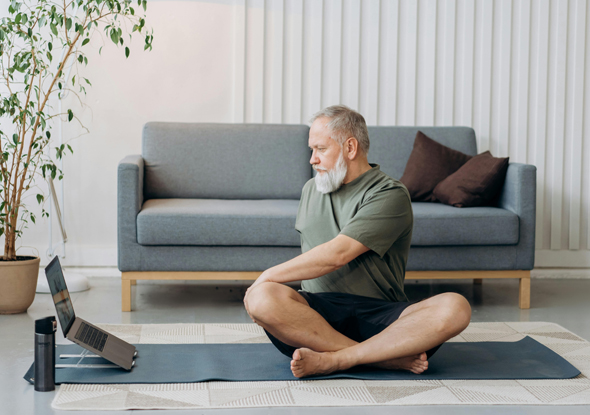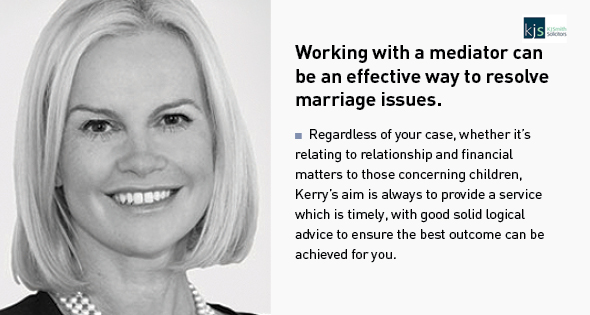Is Online Mediation Right For You?

- This blog contains affiliate links, which we may receive a commission for purchases. The decision is yours, whether or not you decide to buy.
Is online mediation right for you?
Online mediation is clearly here to stay. It is likely to be the right option for a lot of people. At the same time, it may not be the right option for everyone. With that in mind, here are some points to consider before deciding whether or not it’s right for you.
Is it important to verify people’s identities?
For the most part, UK law accepts that it is possible to verify a person’s identity online. In fact, overall, there is a clear move to digital identity checks. For example, the UK government is set to reintroduce digital right-to-work checks instead of abolishing them as intended.
With that said, there may be times when it is necessary, or at least preferably, to verify somebody’s identity in person. For example, if you are having your mediation costs paid by a third party such as a charity, they may insist on it to prevent fraud.
Is there likely to be a lot of paperwork?
Paperwork can be sent electronically. It is, however, not necessarily convenient to read a lot of paperwork from a screen. What’s more, not everybody has a printer in their home. Paperwork can be sent out by post but that needs to be done well in advance of the meeting. There will also be a cost to posting paperwork plus a potential security concern.
If documents need to be signed, then it may be more practical and more robust (legally) to have them signed in the real world. It is, however, usually possible to have documents notarized online if extra security is required.
Does everyone have the right technology?
Online mediation is typically done over videocall. Videocalls need significant bandwidth so a reliable internet connection is a must. In fact, ideally, you should have a backup internet connection as well. This can be mobile data as long as you have enough of it.
Ideally, you should run your videocall through a computer, or at least a tablet, rather than a smartphone. This gives you a much bigger screen and potentially a better camera.
This can make a huge difference to the quality of your experience in a mediation session. With a bigger screen, you can see more of other people’s expressions. With a better camera, they can see more of yours. Similarly, it’s distinctly preferable to use a high-quality headset for mediation sessions. Even if privacy does not appear to be an issue, using a headset will improve sound quality.
This will make it easier for you to pick up on other people’s verbal signals and vice versa. If background noise is an issue, then you’ll need a noise-cancelling headset. Whatever equipment you use, you should be comfortable using it before a mediation session. Similarly, your equipment should be set up ergonomically.
This is essential to ensuring that you remain physically comfortable throughout the mediation session. You will also need plenty of light for cameras to function effectively.
Is everyone comfortable with video calling?
The whole point of mediation is that it’s a safe environment where people can feel comfortable expressing themselves. For some people, a videocall may not offer that feeling of comfort. If that’s the case then real-world mediation sessions may be the way to go.
Can everyone find a suitable location for the session?
In principle, online mediation can offer a level of convenience that real-world mediation just can’t match. The need to travel is eliminated. Everyone can be in their own space. The need to organise childcare is minimised. It may even be possible to arrange mediation sessions outside of core business hours since the mediator won’t be travelling either.
In practice, that only applies if everyone has access to a comfortable and private location (plus the necessary equipment). As the pandemic has shown, this is not a reality for everyone. Some people do not work from home (at least not voluntarily) because their home is not suited to it. Likewise, not everyone’s home is going to be suited to online mediation.
Even if the people involved do have a space that’s technically suitable for mediation, it’s important to think about the emotional aspect of the experience. With real-world mediation, you literally leave the mediation session behind as soon as you walk out of the room and close the door. That’s not possible with online mediation.
That said, there may be ways to address these issues. For example, going to a suitable private space away from a person’s main home may still be more convenient than travelling to a mediator’s office. Similarly, there are ways to transition from mediation to non-mediation. For example, you could go outside for some fresh air.
How easy is it for people to travel?
As a rule of thumb, the further out you live from a major urban area, the more logistics tends to favour online mediation. This does, of course, depend on everyone having reliable internet. This can still be a sticking point in rural locations. Rural internet has, however, very much improved over recent years and is still improving.
How much of a hurry are you in?
Even if you live in a city, you’re only going to have a limited number of mediators in your area. What’s more, if these mediators also offer online mediation (as is highly likely), they could be working with clients from all over the UK.
This basically means that your mediation schedule is likely to depend on what time-slots you can get. Going for remote mediation allows you to work with a mediator anywhere in the UK. This can make it much easier to achieve progress at the fastest possible pace. It can also make it easier to find a mediator with a niche skillset.
Would you prefer shorter mediation sessions?
In principle, the length of any mediation session can be agreed upon between the mediator and the participants. In practice, the realities of travel generally favour minimising the number of sessions and maximising their length. If you'd like to have shorter mediation sessions, then online mediation is likely to be a more suitable option.
Author Bio Kerry Smith is the head of Family Law at K J Smith Solicitors and are experienced in all matters relating to divorce, civil partnerships, cohabitation disputes and collaborative law.
PHOTO: MATILDA WORMWOOD
You may also like
Books
Buy now from Amazon
Podcast
If you’re looking for some straight-up, positive advice on topics that affect your daily life, then check out The Sue Atkins Parenting Show. Each week Sue bare will discuss every possible aspect of your parenting challenges, from weaning to whining, boundaries round technology to stroppy teens. You’ll get practical tips, techniques and advice that really work- and it’s all totally free.
Articles
- 5 Ways To Parent With A Narcissist
- How To Be Great Parents Through Separation And Beyond
- Divorce From A Child's Perspective
Videos
Practical advice and tips from professionals on what to do with issues and challenges around divorce from parenting to finance.
Events
Practical tips & advice designed to help people going through divorce, whether online or in person.
Useful links
Here's a selection of organistaioins from parenting to finance to help you with your divorce.
Legal professionals
Related Posts
-

Most Common Age for Divorce in the UK and the Key Reasons Behind It
-

Reclaiming Joy After Divorce: Small Daily Rituals That Make a Big Difference
-

Navigating Social Media During Separation: Essential Dos and Don’ts in the UK
-

Is Silence Destroying Your Marriage? How Poor Communication Leads to Divorce (And What You Can Do About It)
-

When Is the Best Time to Start Family Mediation in the UK? | Guide for Separating Couples



.jpg)

.jpg)



.jpg)

